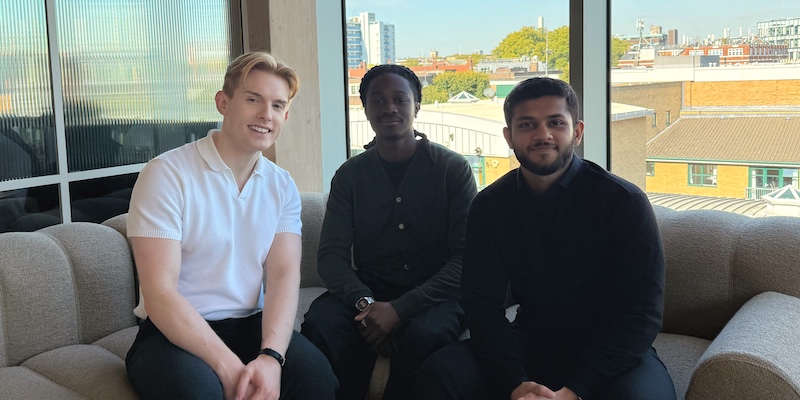
Think equal and innovate for change
The lack of women in tech startups is a generally and widely acknowledged fact. Most relevant media outlets will have likely covered this topic at one point or another, whether sparked by the high profile and controversial James Damore/Google memo, or by the story of some female entrepreneurs having to invent male co-founders to be taken seriously. Looking at the statistics, this issue is brought into even sharper focus...
"For every £1 of venture capital (VC) investment in the UK, all-female founder teams get less than 1p."
Crunchbase reported that ‘In 2017 just 17% of companies had a female founder, a number that hasn’t changed in five years’ while the number of VC funded companies with a female CEO is a shocking 2.7%. A recent report "UK VC & Female Founders report" from the British Business Bank, Diversity VC and BVCA shows that for every £1 of venture capital (VC) investment in the UK, all-female founder teams get less than 1p. It’s with a matter of urgency that we as individuals, a sector and society need to understand what perpetuates these unacceptable percentages, why it’s so important to push these to an equal par and to learn from and support those currently operating in the minority.With the multiple and credible quashings of the ‘men are from mars, women are from venus’ narrative, the idea that biological differences are to blame for the established gender disparities in the tech startup scene isn’t one that floats. Instead a large part of the discussion currently revolves around systemic and unconscious bias. Starting from an early age, girls are often unconsciously discouraged from subjects such as maths and science, educational routes which can typically lead in to a career in the tech startup sector. Meanwhile, Amazon made news towards the end of 2018 demonstrating that discrimination is no longer just a human problem. It’s artificial intelligence hiring tool was found to be rating candidates for technical posts in a non gender-neutral way, illuminating the utmost importance of careful and mindful design to ensure machines do not echo, and therefore perpetuate the gender bias world in which they exist. According to an ISACA (Information Systems Audit and Control Association) survey, there are two other reasons which score higher than gender bias as the main barrier for women in technology. 48% of women identified that a lack of female mentors was an issue and for 42% it was a lack of female role models. As She Can Code co-founder Nicole Pretorius quite rightly points out, there is a ‘preponderance of male role models in the sector - Steve Jobs, Bill Gates, Elon Musk etc.’ Long term systemic change is desperately needed. However, in the meantime, continuously engaging with and sharing the stories of the women who have already taken their deserved place in the tech startup sector is one way that we can ensure there are more visible female role models. With that in mind, later this week we’ll be publishing a piece looking into the diverse backgrounds and journeys of four female founders in BGV’s portfolio companies.Interestingly, there’s a subtopic within this larger discussion that doesn’t seem to be touched on as frequently. The fact that it isn’t always necessary to be technical to found or be part of a tech startup is an important point to emphasise. While hopefully changes in the education system will see more women in STEM roles in the future, it might not be necessary to code to feel justified in stating you work or want to work in this sector. For those without hard technical skills, there is an alternative way to confidently exist in this space, something which Alix Dunn co-founder of The Engine Room has termed ‘technical intuition.’ As Alix explains ‘I didn’t want our organisational partners to learn to code, I wanted them to learn how to talk to developers.’ This concept explores dealing with digital complexity by harnessing skills of empathy and communication.Ultimately, creating a movement of equal opportunities takes more than just the will of the underserved, it takes all those involved in the industry moving in the same direction, knowing that changes must be made. For those who claim not to feel or see the ramifications of the disparity in question, discussing why we need women in tech startups, is a vital route to enlightenment. One way to approach this is to consider the consumer/creator dynamic. Tech startup products are no longer for the niche early adopter, to truly make an impact and return, businesses can’t afford to alienate 50% of the population. It follows then, that those in the demographic who consume really should be involved in the creation. As Dr Sue Black OBE explains “only when we have diverse teams, diverse workforces, and diverse experiences contributing, will we be creating products and services that are fit for all.”
This year, to mark International Women’s Day on Friday 8th March, BGV will be hosting an extra special Tech For Good meetup to "think equal, build smart and innovate for change." Through a workshop designed to provide connections and learnings, we’re inviting women in tech for good to share the challenges and opportunities they’ve encountered working in this space. Find out more information and sign up here (please note spaces are limited.)





